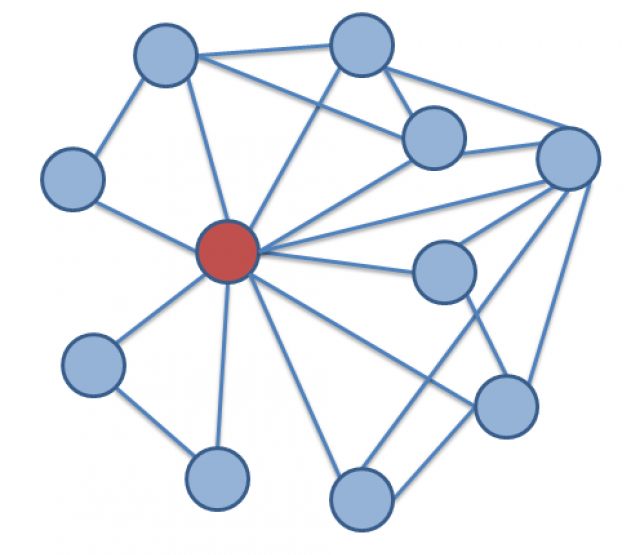
Förderjahr 2018 / Stipendien Call #13 / ProjektID: 3451 / Projekt: Dialogical Access to Lightweight Semantic Web Services
The web is undoubtedly one of the most successful inventions in the world. After 30 years of its invention, the web is finally evolving to a platform to be consumed primarily by automated agents like intelligent personal assistants. This new evolved web can be also called “the headless web” where the applications are still powered by the web but the concept of browsing is losing its importance. This paradigm shift has been mainly triggered by the development in artificial intelligence that allowed such intelligent assistants to be more ubiquitous than ever. Meanwhile, search engines started to switch their strategy to answer users’ queries directly in the search results, rather than redirecting them individual web pages. If there are certain milestones in the history of web, these developments in artificial intelligence is certainly one of them after the invention of browsers. However such automated agents cannot go too much further without a source of machine readable data and services to consume.
The vision of Semantic Web has been exactly to achieve this machine readable web. However, after many years of academic work, the industry has not really taken it up due to lack of incentive. Now the need for a machine readable web is becoming more and more clear, initiatives like Schema.org are enabling data publishers to contribute to the machine-readable web. Schema.org is an initiative founded by four search engines Bing, Google, Yahoo!, Yandex, that maintains a vocabulary for describing structured data on the web [Guha et al., 2016]. According to the Web Data Commons, approximately 40% of the web pages contain structured data, which is an indicator of the high adoption of the vocabulary among data publishers.
The structured content is already used by the search engines for query answering and special representation of search results. Google utilizes schema.org annotations to feed their Knowledge Graph which, among other things, powers the Google Assistant. Such assistants or more generally dialogue systems are quite good when it comes to question answering, however for tasks like e-commerce, there are still some challenges. Such dialogue systems are typically coupled with a set of web services, which hurts their flexibility, making it harder to introduce new services to an existing dialogue system.
In my research, I am investigating how machine-readable APIs can be utilized to semi-automatically extend an existing dialogue system, by decoupling it from the dialogue system. Decoupling clients from services has been investigated by the semantic web services community for many years [Verborgh et al., 2014], however dialogue systems would also require the adaptation of dialogues to guide users to complete tasks associated with the newly introduced services. The research consists of two main steps:
-
Description of Web APIs with Schema.org Actions
-
Generation of dialogues based on Web API descriptions [Şimşek & Fensel, 2018]
Schema.org Actions are part of the core schema.org vocabulary for describing actions that can be taken on the web. We are utilizing this vocabulary for describing APIs, in order to benefit from its high adoption [Şimşek et al., 2018]. We also implemented a prototype for generating dialogue intents based on schema.org actions annotated Web APIs.
The next step is to create a machine readable specification for schema.org actions, in order to support annotation tools and put very generic actions vocabulary into a framework for annotating Web APIs. While I am putting my work together for the next blog post, you can also follow our GitHub repository where we provide SHACL shapes for schema.org actions for Web APIs and our reference tool implementation. I hope to succeed with my work and make the life of dialogue system developers a bit easier through my approach.
References
[Guha et al., 2016] R. V. Guha, D. Brickley, and S. Macbeth: Schema.org: Evolution of structured data on the web, Communications of the ACM, 59(2):44‐51, January 2016.
[Şimşek et al., 2018] U. Şimşek, E. Kärle, and D. Fensel: Machine Readable Web APIs with Schema.org Action Annotations. In Proceedings of the SEMANTICS 2018, Vienna, September 10th - 13th, 2018, A. Fensel, V. de Boer, T. Pellegrini, E. Kiesling, B. Haslhofer, L. Hollink, and A. Schindler (Eds.), Procedia Computer Science, vol. 137:255-261, 2018.
[Şimşek & Fensel, 2018] U. Şimşek and D. Fensel: Intent Generation for Goal-Oriented Dialogue Systems based on Schema.org Annotations. In Proceedings of 1st International Workshop on Chatbots co-located with the Twelfth International Conference on Web and Social Media (ICWSM2018), Stanford, CA, USA, June 25-28, 2018. Preprint: https://arxiv.org/abs/1807.01292.
[Verborgh et al., 2014] R. Verborgh, A. Harth, M. Maleshkova, S. Stadtmüller, T. Steiner, M. Taheriyan, and R. van de Walle: Survey of semantic description of RESTAPIs. In C. Pautasso, E. Wilde, and R. Alarcon (Eds.), REST: Advanced Research Topics and Practical Applications, pp. 69–89. Springer, 2014.



